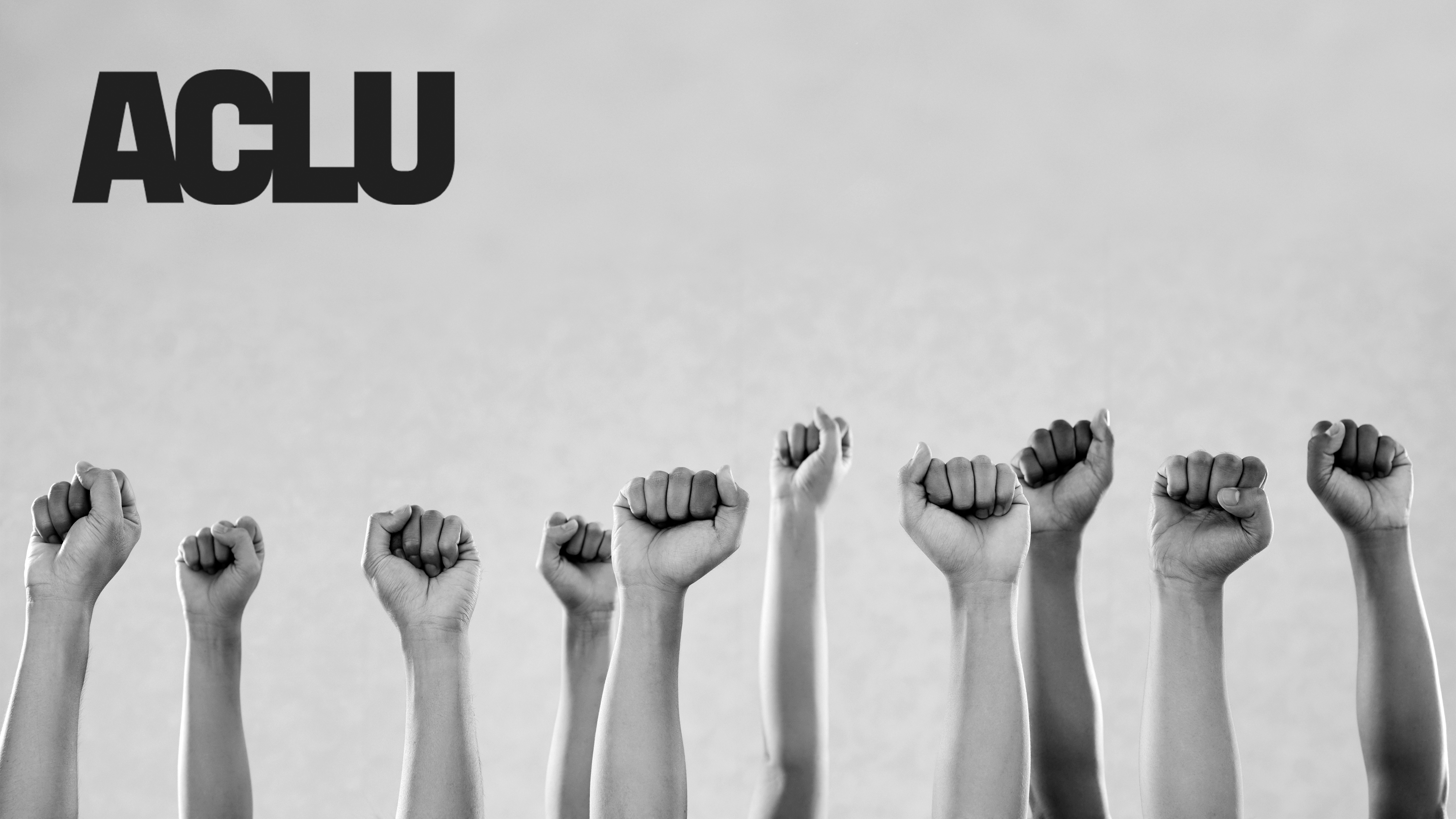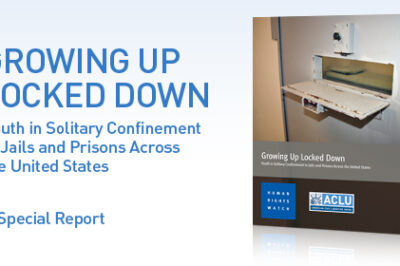Every day, in jails and prisons across the United States, young people under the age of 18 are held in solitary confinement. They spend 22 or more hours each day alone, usually in a small cell behind a solid steel door, completely isolated both physically and socially, often for days, weeks, or even months on end. Sometimes there is a window allowing natural light to enter or a view of the world outside cell walls. Sometimes it is possible to communicate by yelling to other inmates, with voices distorted, reverberating against concrete and metal. Occasionally, they get a book or bible, and if they are lucky, study materials. But inside this cramped space, few contours distinguish one hour, one day, week, or one month, from the next.
A new report from the ACLU and Human Rights Watch, “Growing Up Locked Down: Youth in Solitary Confinement in Jails and Prisons Across the United States,” is based on interviews and correspondence with more than 125 young people in 19 states who spent time in solitary confinement while under age 18 as well as with jail and/or prison officials in 10 states.
Watch a video featuring young people who have been locked in solitary:

Watch a panel of experts and officials discuss the use of solitary confinement for youth in New York’s facilities:

Solitary confinement can cause extreme psychological, physical, and developmental harm. For children, who are still developing and more vulnerable to irreparable harm, the risks are magnified – particularly for kids with disabilities or histories of trauma and abuse. While confined, children are regularly deprived of the services, programming, and other tools that they need for healthy growth, education, and development. This paper makes the case that we should be helping kids to grow into productive and healthy adults, not harming them, and provides some solutions to the problem of juvenile solitary confinement.
Author: Ian Kysel (@ianmkysel)
Press Coverage: Harvard Prison Legal Assistance Project
Articles/Blogs Written By Author: “How not to rehabilitate young prisoners” – Al Jazeera | “International body slams U.S. solitary confinement practices” – San Francisco Bay View
Related Advocacy/Litigation: ACLU to Testify Today: Solitary Confinement is a Human Rights Violation Happening on U.S. Soil | Written Statement of the American Civil Liberties Union and Human Rights Watch before the Inter-American Commission on Human Rights – Hearing on Incarceration of Youth in U.S. Adult Prisons
Related Issues
Stay Informed
Every month, you'll receive regular roundups of the most important civil rights and civil liberties developments. Remember: a well-informed citizenry is the best defense against tyranny.


